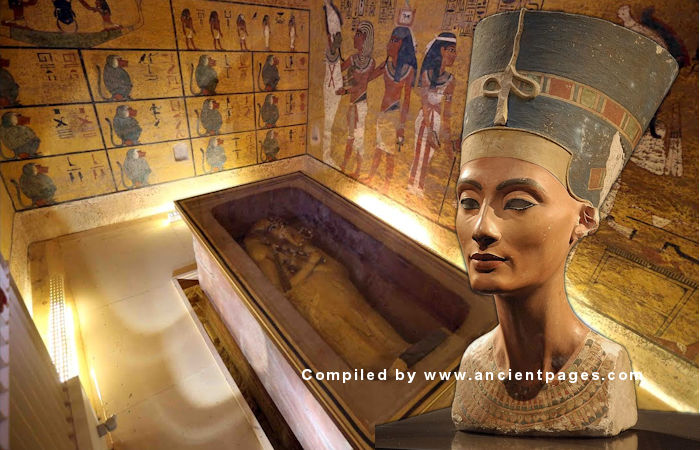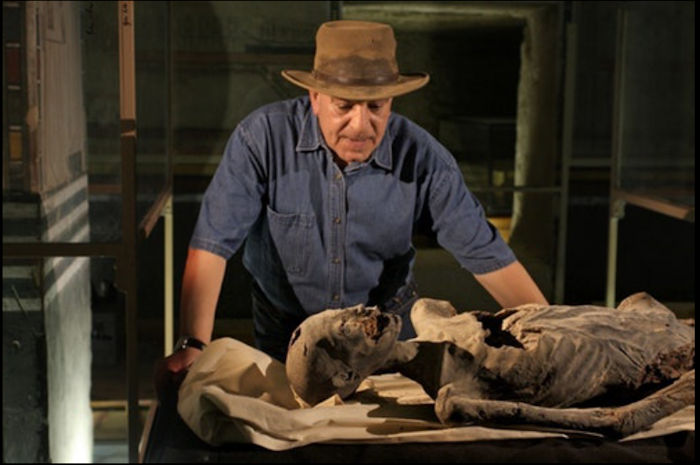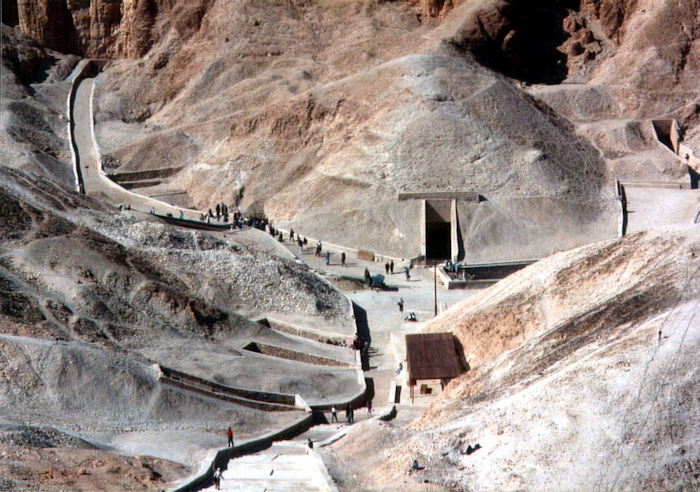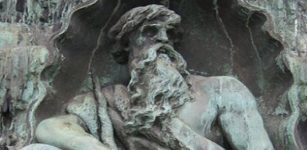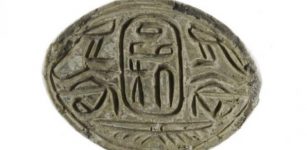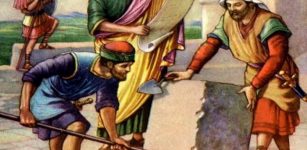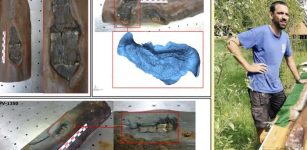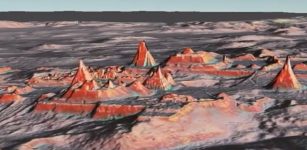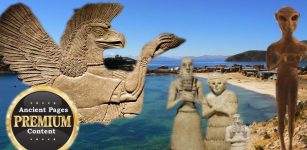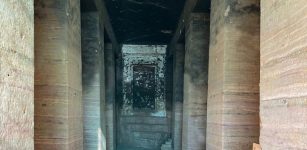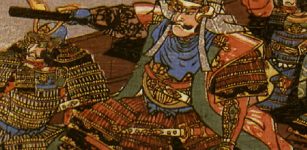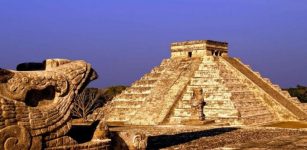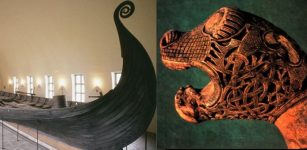Discovery Of Queen Nefertiti’s Mummy Will Be Announced Next Month – Zahi Hawass Says
Conny Waters -– AncientPages.com - Queen Nefertiti was the most powerful woman of her time and one of ancient Egypt's most mysterious historical people.
There is still much we don't know about her and her sudden disappearance after being elevated to near-equal status by King Akhenaten.
As previously mentioned on Ancient Pages, Queen Nefertiti was of the eighteenth dynasty, fourteenth century BC. Some think she was the daughter of Ay, brother to Queen Tiye, and wife of Amunhotep III. Some think she may have been a foreign princess, perhaps Tadukhipa of Mitanni. It has also been suggested Nefertiti was Smenkare. As discussed earlier on AncientPages.com, "Smenkare appeared from nowhere, taking the place of Nefertiti at the end of Akhenaten's rule and ruling for about 3 years afterward.
The plague struck the city in the 13th year of Akhenaten's reign, even spreading to the royal palace. In the year 14 of Akhenaten's reign, Nefertiti vanished. Maybe Nefertiti died from the plague, as some have theorized, but the fact that she is shown in place of the protective goddesses on the four corners of Akhenaten's sarcophagus suggests otherwise and could be evidence she performed the "Opening of the Mouth" ceremony that the Egyptians believed gave immortality, generally done by the heir to the throne.
Granite head statue of Nefertiti. The securing post at the head apex allows for different hairstyles to adorn the head. Altes Museum, Berlin. Image credit: Keith Schengili-Roberts - CC BY-SA 3.0
Akhenaten died in year 17 of his reign and was buried in a tomb 4 miles from Amarna which faced the rising sun. Nefertiti was supposed to have been buried in this same tomb, but the chambers prepared for her there were never used and left unfinished, whereas Akhenaten's part of the tomb was finished." 1
The Egyptologist and former Egyptian Minister of Antiquities Zahi Hawass has spent many years searching for the mummy of Nefertiti and her burial. In a recent interview with El Independiente Hawass said he will soon unravel the mystery of Queen Nefertiti to the public. He is confident he will be able to reveal the discovery of Queen Nefertiti's mummy in October or November.
The large majority of ancient Egyptian riches are still buried beneath the sand. Hawass estimates archaeologists have uncovered about 30% of all ancient Egyptian treasures. There is still much to discover in Egypt. Archaeologists are working hard to piece together the country's ancient history.
Hawass, who is still looking for the body and grave of Queen Nefertiti, thinks one of the mummies scientists found could be the mysterious ancient Egyptian Queen.
Zahi Hawass examining a mummy. Credit: Muhammad A. Fadoul - CC BY-SA 4.0
"I am still looking for two things: her grave and her body. I really believe that Nefertiti ruled Egypt for three years after Akhenaten's death under the name of Smenkhkare. I have searched for her burial all over the west of the Valley of the Kings and have not been able to find her. On September 1, I began the excavation campaign in the eastern area of the Valley of the Kings.
I am also looking to identify his mummy through a major project supported by National Geographic. We already have DNA from the 18th dynasty mummies, from Akhenaten to Amenhotep II or III, and there are two unnamed mummies labeled KKV21a and b.
In October, we will be able to announce the discovery of the mummy of Ankhesenamun , Tutankhamun's wife, and her mother, Nefertiti. There is also in tomb KV35 the mummy of a ten-year-old boy. If that child is the brother of Tutankhamun and the son of Akhenaten, the problem posed by Nefertiti will be solved.
There is also in tomb KV35 the mummy of a ten-year-old boy. If that child is the brother of Tutankhamun and the son of Akhenaten, the problem posed by Nefertiti will be solved. In the Golden City I found the name of Smenkhkare.V21a and b.
I am sure I will reveal which of the two unnamed mummies could be Nefertiti. Excavations have just started in the eastern Valley of the Kings and will take a year. Archeology is luck. I hope it will be my last year digging in the Valley of the Kings. I've already looked at five locations, and if I can't find the tomb, I'm leaving,” Hawass told El Independiente.
The Egyptologist is convinced there are still royal burials awaiting discovery in the Valley of the Kings.
“I myself have located two graves. The KV65 was used as a tool store. And the other is a room. I dug more rooms and found nothing else. We know that there are still undiscovered graves in the area. I am looking at Deir el Bahari because there is some evidence that the burials could be there. Right now, my team is also looking for the tomb of Ramses III in the same area and the graves of non-royal figures,” Hawass said.
Valley of the Kings, Luxor. Credit: Peter J. Bubenik - CC BY-SA 2.0
He also explained that finding the tomb of Cleopatra is not one of his primary goals. His attention is entirely on the tomb of Queen Nefertiti.
“My dream right now is to locate Nefertiti. I hope that if God grants it to me, the discovery will take place this year, and it will be the best thing that has ever happened to me. But I'm sure I'll reveal Nefertiti's mummy in a month or two. I will announce it to the public simultaneously with the latest Tutankhamun DNA results. We are in a position to provide new information about her death.
See also: More Archaeology News
Until now, we knew that he had an accident in his left leg, but we did not know if that was the reason for his death or if he was killed. A new scanning machine has allowed us to detect that he had an infection. If it is confirmed, I will announce before November that he died due to an accident,” Hawass said.
If Zawass is not over-confident, it seems the world of archaeology has many fascinating discoveries awaiting to be revealed to the public in a month or two.
Written by Conny Waters - AncientPages.com Staff Writer
Expand for references
